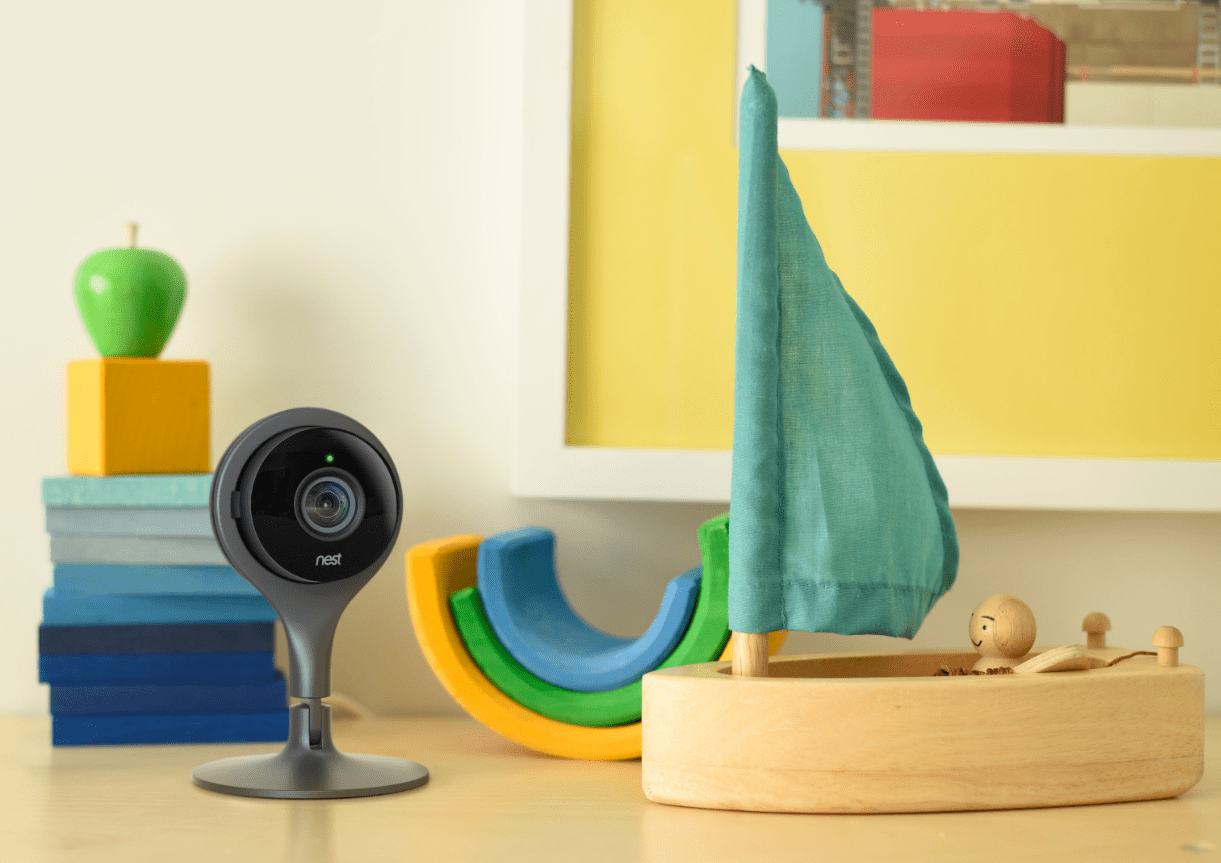
Roughly the size of a soda can, sitting on a bookshelf, and whirring away some 24-hours a day, a relatively innocuous gadget may be turning friends and family away from your home. The elephant in your living room is your Internet-connected security camera, a device people are increasingly using for peace of mind in their homes. But few stop to think about the effect these devices may have on house guests. Should you tell your friends, for instance, that they’re being recorded while you all watch the big game together?
“It’s certainly new territory, especially as home security cameras become easier to install,” says Lizzie Post, cohost of the Awesome Etiquette podcast and president of the Emily Post Institute, America’s foremost manners advisors. “I think it will be very interesting to see what etiquette emerges in terms of do you tell people you have a camera or not, and do guests have a right to ask that it be turned off, if it’s not a security issue.”
Post wants to make clear that she’s not talking about legal rights, but rather personal preferences. She also wants to explain that there are no right or wrong answers regarding manners on this front yet, because the technology is just now becoming mainstream. Besides, the Emily Post Institute doesn’t mandate manners. According to Post, the organization acts as a social barometer measuring and following what people find to be acceptable behavior. And as new products are introduced, they bring new problems to grapple with. “We’re conquering new territory in the world of etiquette,” says Post.
When it comes to security cameras, Post says it’s a host’s responsibility to make sure guests feels comfortable within their home. “I’m always a fan of being open and honest and acknowledging things.” For instance, if the host casually acknowledges that there is a camera in the room by telling a story about it, that may be enough to provide an opening for a guest to say if they are uncomfortable.
But it’s also up to the guest to communicate any discomfort they have about being recorded. “Communicating it gently with a potential alternative or suggestion is really the way to go,” says Post. “Making a giant fuss about it and making demands is a sure way to damage a relationship.” So, for instance, if a person is camera-shy, they could suggest meeting up at a restaurant or a coffee shop instead of getting together at a home with a web security camera.
But not every guest deserves to be treated with kid gloves, says Post. For example, if a contractor is working in your home, you don’t need to tell them that there are cameras watching. “It’s a different relationship, it’s one where your security is something that they should understand and respect,” says Post.
Then again, the air of accountability that the camera generates can also work in contractors’ favor. “If anything does go wrong while they’re in the house, they don’t want to be to blame for it,” she says. “In fact, the camera could be the thing that proves that they didn’t steal the $20, or knock the vase off the table.”
More Must-Reads from TIME
- Donald Trump Is TIME's 2024 Person of the Year
- Why We Chose Trump as Person of the Year
- Is Intermittent Fasting Good or Bad for You?
- The 100 Must-Read Books of 2024
- The 20 Best Christmas TV Episodes
- Column: If Optimism Feels Ridiculous Now, Try Hope
- The Future of Climate Action Is Trade Policy
- Merle Bombardieri Is Helping People Make the Baby Decision
Contact us at letters@time.com